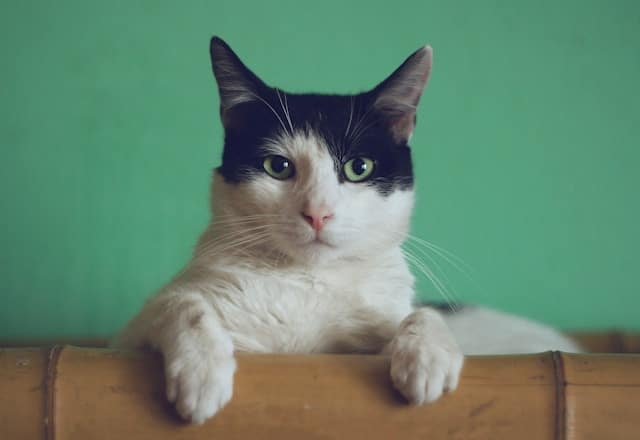Choosing the correct diet for your cat is essential, more so if your furry companion is prone to urinary tract issues. By understanding the correlation between food and urinary health, you can help prevent the onset of urinary tract infections (UTI) and provide your cat with a healthier and happier life.
Understanding Cat Urinary Health
Urinary tract health is vital for your cat’s overall well-being. Cats prone to urinary issues such as UTI, bladder stones, or urinary crystals will benefit from a diet that specifically targets urinary health.
A lire également : What’s the Best Strategy for Preventing Hairballs in Long-Haired Cat Breeds?
Cats naturally have concentrated urine due to their desert-dwelling ancestors. This concentration can sometimes lead to the formation of crystals or stones in the urinary tract. The presence of these obstructions can lead to painful and potentially life-threatening infections or blockages.
Urinary health in cats encompasses many different components, including the health of the kidneys, bladder, ureters and urethra. However, for cats prone to urinary issues, the focus often falls primarily on the bladder, as this is where stones and crystals tend to form.
A lire en complément : What’s the Most Effective Way to Train a Dog to Walk Politely on a Leash in Crowded Areas?
The Importance of Moisture in Cat Food
Cats, by nature, don’t drink a lot of water. This lack of hydration can contribute to the formation of crystals and stones in the urinary tract. As such, one of the most effective ways to combat urinary issues in cats is to increase their water intake.
Feeding your cat a diet rich in moisture can significantly increase their overall water intake. Wet cat food often contains up to 80% water, substantially more than the approximately 10% found in dry cat food. By incorporating more moist food into their diet, you’re helping dilute the concentration of their urine, thus reducing the chance of stone and crystal formation.
When choosing a moist food for your cat, opt for those made with high-quality ingredients, avoiding foods with excessive fillers and artificial additives. A diet rich in moisture keeps the cat’s urine less concentrated, reduces the risk of crystal formation and promotes a healthy urinary tract.
Protein Levels and Cat Urinary Health
While moisture plays a crucial role in maintaining your cat’s urinary health, so does protein. Cats are obligate carnivores, meaning their bodies are designed to derive nutrients from animal sources. High levels of protein in their diet are therefore not only beneficial but necessary.
However, too much protein can also be harmful, especially for cats prone to urinary health problems. High protein diets can increase the acidity of a cat’s urine, promoting the formation of certain types of urinary crystals.
It’s essential to find a balance. A diet that meets their protein needs without overloading them is crucial. Look for cat foods that are high in animal-based proteins like chicken and avoid foods with plant-based proteins, as they are harder for cats to digest.
Dry Food vs Wet Food for Cats with Urinary Issues
When it comes to choosing between dry and wet food, you must consider your cat’s specific needs. While dry food may be more cost-effective and convenient, wet food is generally the better choice for cats prone to urinary issues.
As mentioned earlier, wet food contains significantly more moisture than dry food. This additional water can help dilute urine, making it less likely that harmful crystals and stones will form.
However, if your cat prefers dry food, there are still options available. Some dry foods are specially formulated to maintain urinary tract health. These foods often contain lower amounts of magnesium and phosphorus, which can contribute to the formation of urinary crystals and stones.
The Best Foods for Cats with Urinary Issues
When shopping for cat food, be sure to read the ingredients and nutritional information. Foods with fewer fillers and more high-quality ingredients will generally be better for your cat’s overall health, including their urinary tract health.
Some top-rated brands offer food specifically formulated for urinary health. These foods often contain controlled levels of minerals like calcium, phosphorus, and magnesium, which can contribute to urinary stone formation if levels are too high.
Look for foods with high moisture content and right amounts of quality proteins, like chicken or other meats. Most importantly, ensure you’re providing your cat with a balanced diet that caters to all their nutritional needs.
Remember, each cat is unique, and what works best for one might not work for another. It’s crucial to monitor your cat’s health and adjust their diet as necessary under the guidance of a veterinarian. Understanding and addressing your cat’s specific dietary needs can go a long way in preventing urinary issues and ensuring their overall well-being.
Monitoring Your Cat’s Urinary Health
Regularly monitoring your cat’s urinary health can go a long way in preventing serious issues. Pay attention to your cat’s urinary habits and look for signs of discomfort or changes in their behavior. Frequent urination, blood in urine, or pain while urinating are some potential signs of a urinary problem. If you notice any such signs, it’s crucial to consult your vet immediately for proper diagnosis and treatment.
Cats with a history of urinary issues may require routine check-ups to ensure their urinary tract health. During these visits, your veterinarian will likely run diagnostic tests to check for the presence of urinary crystals or stones, and to monitor the pH level of your cat’s urine. An acidic pH can increase the likelihood of certain types of urinary crystals forming, while an alkaline pH can lead to other types of crystals.
Balancing the pH of your cat’s urine by feeding them the right diet is hence essential. Diets that help maintain a neutral urinary pH are often recommended for cats prone to urinary issues.
Remember, diet is not the only factor that affects a cat’s urinary health. Lack of physical activity, obesity, and stress can also contribute to urinary problems in cats. Encouraging your cat to exercise regularly and maintaining a stress-free environment are important steps towards promoting overall health, including urinary health.
Conclusion
Maintaining your cat’s urinary health is a crucial aspect of their overall well-being, especially if your cat is prone to urinary issues. Choosing the right diet plays a significant role in this regard. Cats prone to urinary problems will benefit from a diet with high-quality animal proteins, low magnesium, balanced pH, and most importantly, high moisture content.
Whether dry food or wet food is best for your cat can depend on a variety of factors, including their specific health needs, their preference, and your budget. However, wet food is generally recommended for cats with urinary issues due to its high moisture content. If your cat prefers dry food, choose one that is specially formulated to promote urinary tract health.
Always consult with a veterinarian before making significant changes to your cat’s diet. It’s also important to monitor your cat’s urinary habits regularly and schedule routine check-ups to catch potential urinary issues early.
Remember, every cat is unique. What works for one cat may not work for another. Therefore, it’s essential to understand your cat’s specific dietary needs and adjust their diet accordingly under the guidance of a professional. By doing so, you can help prevent urinary tract infections and provide your cat with a healthier and happier life.






